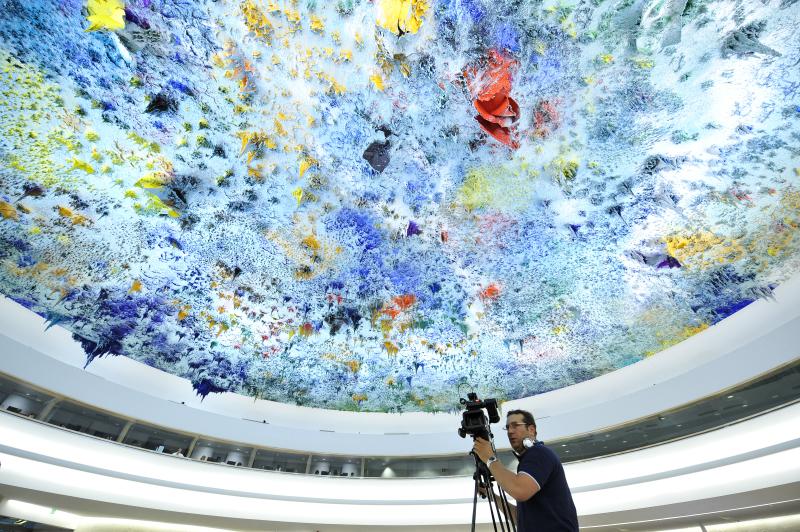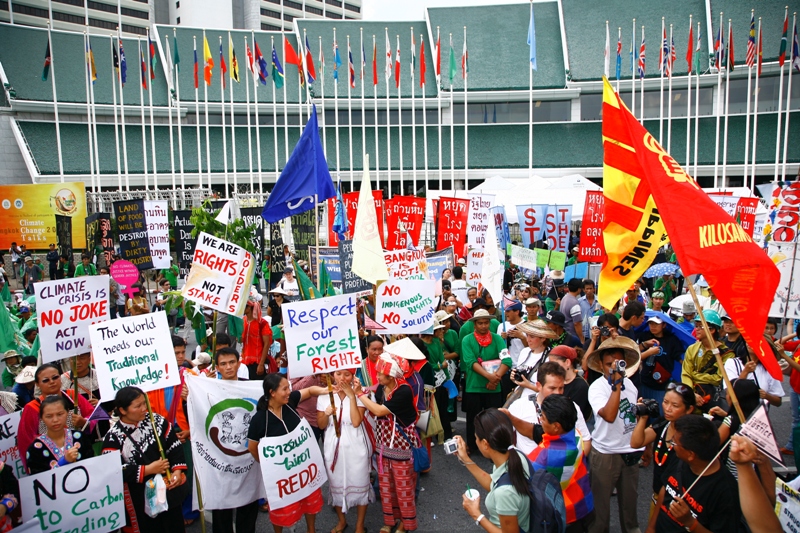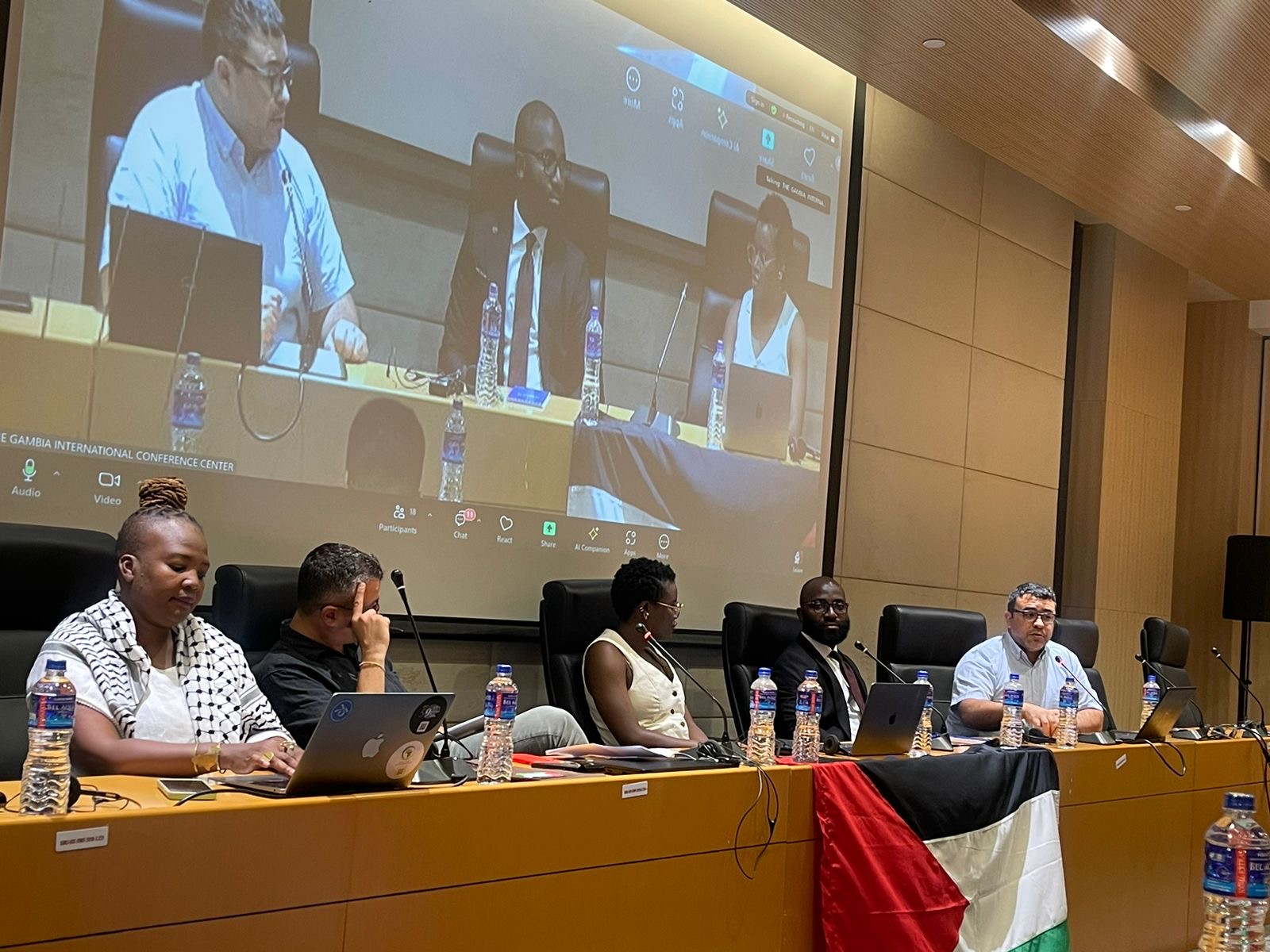The UN General Assembly’s human rights committee in New York – the Third Committee – today passed by consensus a resolution focusing on implementation of the Declaration on Human Rights defenders and some key elements of protection policy.
‘This is a great outcome and congratulations are due to Norway as the lead negotiator,’ said ISHR’s Eleanor Openshaw. ‘The resolution contains important new language on what effective protection policies should contain, as well as further acknowledges the nature of threats against defenders’.
On human rights defender protection policy, the resolution states:
-
the need for comprehensive risk analysis;
-
that protection mechanisms should provide an early warning function to enable human rights defenders immediate access to ‘competent and adequately resourced authorities to provide effective protective measures’;
-
the need for policies to ‘address causes of attacks against defenders and barriers against the defence of rights’, and
-
the need for coordination across government and between national and local levels so as to implement a commitment to uphold the right to defend rights.
In addition, all States acknowledge:
-
the ‘positive, important and legitimate’ the work of ‘environmental human rights defenders’ and the risks they are exposed to;
-
the need for the protection of communities [with a reference to ‘the protection of individuals and the communities in which they live’];
-
the need for improved data on killings, kidnappings, enforced disappearances, arbitrary detentions, torture and other harmful acts against HRDs;
-
that campaigns against women defenders are carried out both online and offline, and
-
that ‘cybercrime legislation’ can be misused to target human rights defenders or to hinder their work and endanger them.
Whilst there was general acknowledgement of the key advances made in the resolution, the EU expressed concern that certain elements in the text were ‘problematic’, including references to morality and public order as the basis for possible limitations on the rights of defenders.
‘There are a couple of paragraphs drawn from the Declaration on Human Rights Defenders that have a potentially limiting effect,’ agreed Openshaw. ‘We welcome the vision and persistence shown by the EU to try to move beyond these. This year, however, progress was made on other fronts.’
Disagreement with some other aspects of the text was also expressed by China, Russia and Vietnam, but these voices were very much in a minority. In fact, the resolution attracted the highest number of co-sponsors yet for any UN human rights defenders resolution, with 85 States signing up. This included several Latin American States, including those with existing protection laws and policies, which were very active during negotations.
‘Ten States co-sponsored the resolution for the first time, including South Africa,’ said Openshaw. ‘This is a significant and welcome development and we hope to see further States step up and co-sponsor in future.’
Several changes were made to the text during adoption, so a final version is yet to be made available. It will go for final and expected adoption by the UN General Assembly in mid- December.
‘The resolution has been adopted but, of course, the real work starts now,’ said Openshaw. ‘This global agreement must lead to real change in the lives of human rights activists globally,’ said Openshaw. ‘States must start that work immediately.’
The following States joined Norway in co-sponsoring the resolution: Afghanistan, Albania, Andorra, Argentina, Armenia, Australia, Austria, Belgium, Bolivia (Plurinational State of), Bosnia and Herzegovina, Brazil, Bulgaria, Cabo Verde, Canada, the Central African Republic, Chile, Colombia, Costa Rica, Côte d’Ivoire, Croatia, Cyprus, Czechia, the Democratic Republic of the Congo, Denmark, the Dominican Republic, Ecuador, El Salvador, Estonia, Finland, France, Germany, Georgia, Greece, Guatemala, Guinea, Haiti, Honduras, Hungary, Iceland, Ireland, Italy, Jordan, Latvia, Lebanon, Liberia, Liechtenstein, Lithuania, Luxembourg, Maldives, Mali, Malta, the Marshall Islands, Mexico, Monaco, Mongolia, Montenegro, Morocco, the Netherlands, New Zealand, North Macedonia, Panama, Paraguay, Peru, Poland, Portugal, the Republic of Korea, Romania, San Marino, Sao Tome and Principe, Serbia, Seychelles, Slovakia, Slovenia, South Africa, Spain, Sweden, Switzerland, Tunisia, Ukraine, the United Kingdom of Great Britain and Northern Ireland, the United States of America, Uruguay and Vanuatu.




